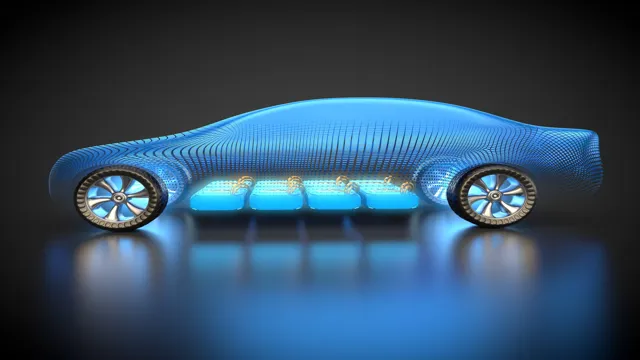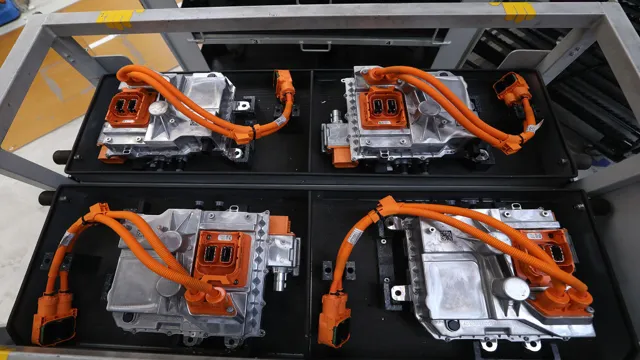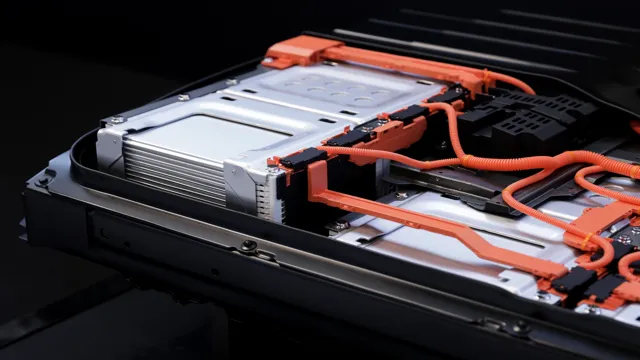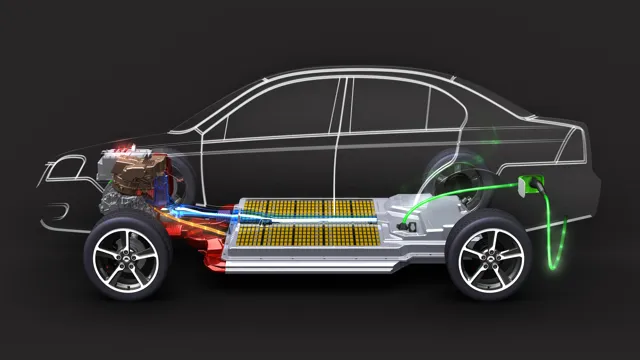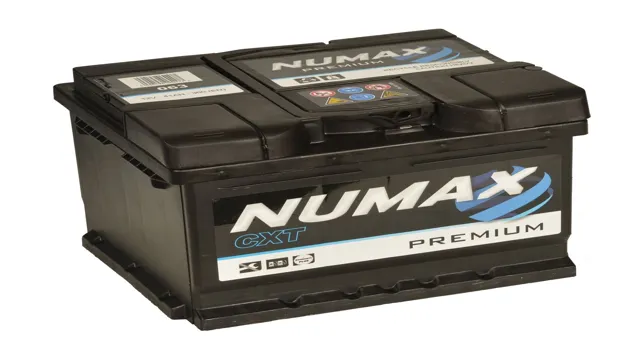Unveiling the Shocking Truth About Electric Car Battery kWh: Understanding the Key to a Greener Future
Electric cars are becoming more prevalent nowadays, and many consumers invest in these vehicles as they are an eco-friendly and cost-effective long-term option. However, one critical factor that often confuses prospective buyers is the electric car battery kWh (kilowatt-hour) rating. If you’re one of them, don’t worry! In this blog post, we’ll provide you with all you need to know about the electric car battery kWh rating.
We’ll explain what kWh is, how it relates to electric cars, and why it’s crucial to consider before buying an electric vehicle. So, get ready to become an expert on electric car technology and make an informed decision about your next car purchase!
What is a kWh?
If you’re interested in electric cars, you’ve probably heard the term “kWh” being used a lot. But what does it actually mean? A kWh, or kilowatt-hour, is a unit of energy commonly used to measure the capacity of electric car batteries. It’s equivalent to the amount of energy that would be used by a 1,000-watt appliance for an hour.
For example, a Tesla Model S with a battery capacity of 100 kWh would be able to power a 1,000-watt appliance for 100 hours before it ran out of charge. Understanding kWh is important because it gives you an idea of how much range you can expect from your electric car, and how long it will take to recharge it. So, the next time you hear someone talking about kWh in the context of electric cars, you’ll know exactly what they’re referring to.
Explaining Kilowatt-hours
Kilowatt-hours, also known as kWh, is a unit of measurement used to determine the amount of energy consumed over time. It’s a term that’s commonly used in the energy industry and has become increasingly popular among consumers in recent years. Essentially, a kWh represents the quantity of energy that would be used by an appliance with a power rating of 1 kW, operating for one hour.
To put this into perspective, running a 100-watt light bulb for 10 hours would consume 1 kWh of electricity. More commonly, however, kWh is used to determine monthly energy consumption in households. Understanding kWh is essential when analyzing energy bills, comparing energy plans, and making energy-efficient decisions.
By tracking your monthly kWh usage, you can identify ways to reduce energy consumption and make informed choices about your energy usage.
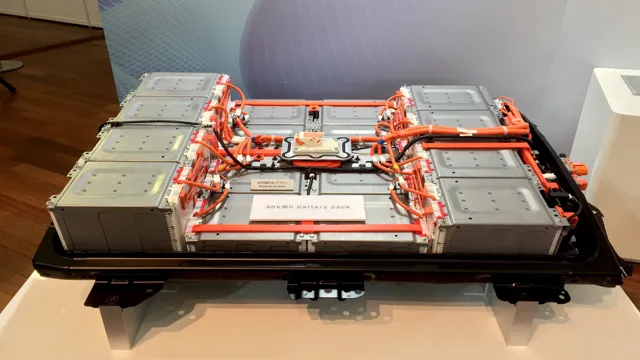
Appliance Energy Consumption
When it comes to appliance energy consumption, we often hear measurements in terms of kilowatt-hours (kWh). But did you know that this unit of measurement is also commonly used for electric car batteries? The kWh is a measure of energy, and in the case of an electric car battery, it indicates how much energy the battery is capable of storing. This is important because it affects the car’s range – the higher the kWh, the greater the range.
For example, a car with a 60 kWh battery can travel farther on a single charge than one with a 40 kWh battery. It’s important to keep in mind that the amount of energy a car uses also depends on factors such as speed, terrain, weather, and driving habits. But overall, the kWh is a useful metric for understanding how much energy an electric car battery can store and how far it can travel on a single charge.
How a kWh is Relevant Here
When it comes to residential energy consumption, understanding the concept of a kWh is crucial. A kWh, or kilowatt-hour, is the unit of measurement for the amount of energy used over time. To put it simply, one kWh is equal to using one kilowatt of power for one hour.
Knowing this is essential for determining the energy consumption of your appliances. Each appliance uses a different amount of energy, expressed in watts, and understanding how long and how frequently you use each one will help you calculate your overall energy usage. By doing so, you can identify which appliances are using the most energy and adjust your habits accordingly.
For example, switching to energy-efficient light bulbs or using a smart power strip can significantly reduce your energy consumption. By keeping an eye on your kWh usage and making small changes, you can save money on your energy bills and help reduce your environmental impact.
Understanding the Capacity of an Electric Car Battery
When it comes to electric cars, one of the most important factors to consider is the capacity of the battery. This is usually measured in kilowatt-hours (kWh), which refers to the amount of energy the battery can store and supply to the car’s motor. The higher the kWh rating, the longer the car can go on a single charge.
For example, an electric car with a battery capacity of 60 kWh can typically drive around 200-250 miles on a full charge. It’s worth noting that the actual range of an electric car can vary depending on factors such as driving style, terrain, and temperature. However, knowing the kWh rating of a battery is a good way to estimate how far an electric car can go before needing a recharge.
So, when shopping for an electric car, it’s important to consider the battery capacity and range to ensure it meets your driving needs.
Battery Capacity in kWh
Electric car batteries are essential components of EVs, and their capacity is measured in kilowatt-hours (kWh). Essentially, the higher the battery’s capacity, the longer the vehicle will be able to travel before requiring a recharge. While some EVs have smaller batteries, others can have batteries that exceed 100 kWh.
For example, the Tesla Model S Long Range Plus boasts a battery capacity of 100 kWh, which allows the car to travel up to 402 miles on a single charge. Understanding the capacity of an EV battery is crucial for potential buyers because it determines the car’s driving range. Moreover, battery capacity plays a significant role in the total cost of an electric car, as higher-capacity batteries typically come at a premium price.
However, it is essential to note that battery technology is improving rapidly, and as a result, EVs are becoming more affordable and longer-ranged. As electric cars continue to grow in popularity, battery capacity is expected to increase, and charging infrastructure will continue to improve, making EVs a viable alternative to fossil fuel-powered vehicles.
Factors Affecting Battery Life
One major factor affecting electric car battery life is the amount of energy stored in the battery, measured in kilowatt-hours (kWh). The more kWh a battery has, the longer it can sustain a charge and the farther the car can travel before needing a recharge. However, other factors also come into play, such as the temperature and climate conditions in which the battery operates.
Extreme temperatures, either too hot or too cold, can degrade the battery and reduce its capacity over time. Additionally, the driving habits and patterns of the driver can also impact battery life. Hard accelerations, frequent high-speed driving, and sudden stops or starts can all contribute to decreased battery lifespan.
To optimize the longevity of an electric car battery, it is recommended to avoid extreme temperatures and to practice smooth, efficient driving habits.
Temperature, Usage, and Maintenance
Battery life is influenced by a number of factors, including temperature, usage, and maintenance. Extreme temperatures, both hot and cold, can reduce battery capacity and shorten its lifespan. High temperatures can accelerate chemical reactions within the battery that can negatively impact its overall performance.
Additionally, frequent and heavy usage can also shorten battery life. The more a battery is used, the quicker it will age and lose its capacity. Proper maintenance of a battery is also crucial in extending its lifespan.
Keeping it clean, avoiding overcharging, and regularly checking its voltage and charge level can all help to keep a battery operating at its optimal level. Ultimately, taking care of a battery and being mindful of these factors can help to ensure a longer and more consistent lifespan.
Range and kWh
When it comes to electric cars, range and kWh are inseparable. The range represents how far the car can travel on a single charge, while kWh represents the electric energy stored in the battery. The higher the kWh rating, the more energy the battery can store, resulting in a higher range.
For example, a car with a 75 kWh battery can travel a distance of approximately 300 miles on a single charge, while a car with a 50 kWh battery can travel around 200 miles. However, range also depends on several other factors such as driving conditions, terrain, and weather. So, while a higher kWh rating translates into more driving distance, it isn’t the only factor to consider.
Nonetheless, with the progress in technology, electric car batteries are becoming more efficient and affordable, and there is no doubt that they will become the future of transportation.
How Far Can You Go on One Charge?
“electric car range” Electric cars are great for saving money on gas and helping the environment. However, if you’re considering buying an electric car, you might be wondering how far you can actually go on one charge. The answer to that question depends on a few factors.
Firstly, the range of an electric car depends on its battery’s kWh (kilowatt-hour) capacity. Generally, the higher the kWh, the longer the range. For example, a car with a 60 kWh battery might have a range of 200 miles, whereas a car with a 100 kWh battery might have a range of 350 miles.
Other factors that can affect range include driving habits, weather, and terrain. Cold weather can decrease range because batteries work less efficiently when they’re cold. On the other hand, an electric car might get better range if you’re driving on flat terrain instead of up steep hills.
Overall, electric cars have come a long way in terms of range, and many models now offer enough range for most people’s needs.
Choosing an Electric Car
When it comes to choosing an electric car, one factor that you need to pay attention to is the battery’s kWh or kilowatt-hour rating. This rating gives you an idea of how much energy your battery can store and therefore how far your car can travel on a single charge. Generally, the higher the kWh rating, the farther your car can go without needing to be recharged.
However, higher kWh batteries can also be more expensive. It’s important to consider your driving needs and habits before making a decision. If you primarily use your car for short trips around town, a lower kWh rating may be sufficient.
On the other hand, if you frequently take long trips, you may want to invest in a higher kWh battery. At the end of the day, your choice of electric car battery will depend on your personal needs and budget.
How to Determine the Best Battery Size for You
When choosing an electric car, one of the key considerations is the battery size. Larger batteries generally provide longer driving ranges and more power, but they also come with a higher price tag. The best battery size for you will depend on your driving habits and needs.
If you primarily use your car for short commutes and will have access to charging stations throughout the day, a smaller battery may be sufficient. However, if you plan to take longer trips or will need to go extended periods of time between charges, a larger battery may be necessary. Additionally, consider the climate you’ll be driving in, as extreme heat or cold can affect battery performance.
By evaluating your daily driving routine and specific needs, you can determine the best battery size to ensure optimal performance and cost-effectiveness for your electric vehicle.
Conclusion
In conclusion, the electric car battery’s kWh rating is like a superhero’s power level. Just like Superman’s ability to lift an entire city or Spider-man’s spider-sense, the kWh rating tells you how much power the battery can hold and deliver to the electric motor. And just like superheroes can save the day, electric cars with higher kWh ratings can go further and propel us into a greener, cleaner future.
“
FAQs
What is the average size of an electric car battery in terms of kilowatt-hours (kWh)?
The average size of an electric car battery is around 60-70 kWh.
How long does it take to fully charge an electric car battery with 60-kWh capacity using a level 2 charger?
It takes approximately 10 hours to fully charge an electric car battery with 60-kWh capacity using a level 2 charger.
Is it possible to upgrade the battery capacity of an existing electric car model?
While it can be possible, it is generally not recommended or supported by car manufacturers due to potential safety and reliability issues.
How much does it cost to replace an electric car battery with a 70-kWh capacity?
The cost of replacing an electric car battery with a 70-kWh capacity can vary depending on the car model and the manufacturer’s pricing, but it can range from $5,000 to $10,000.
